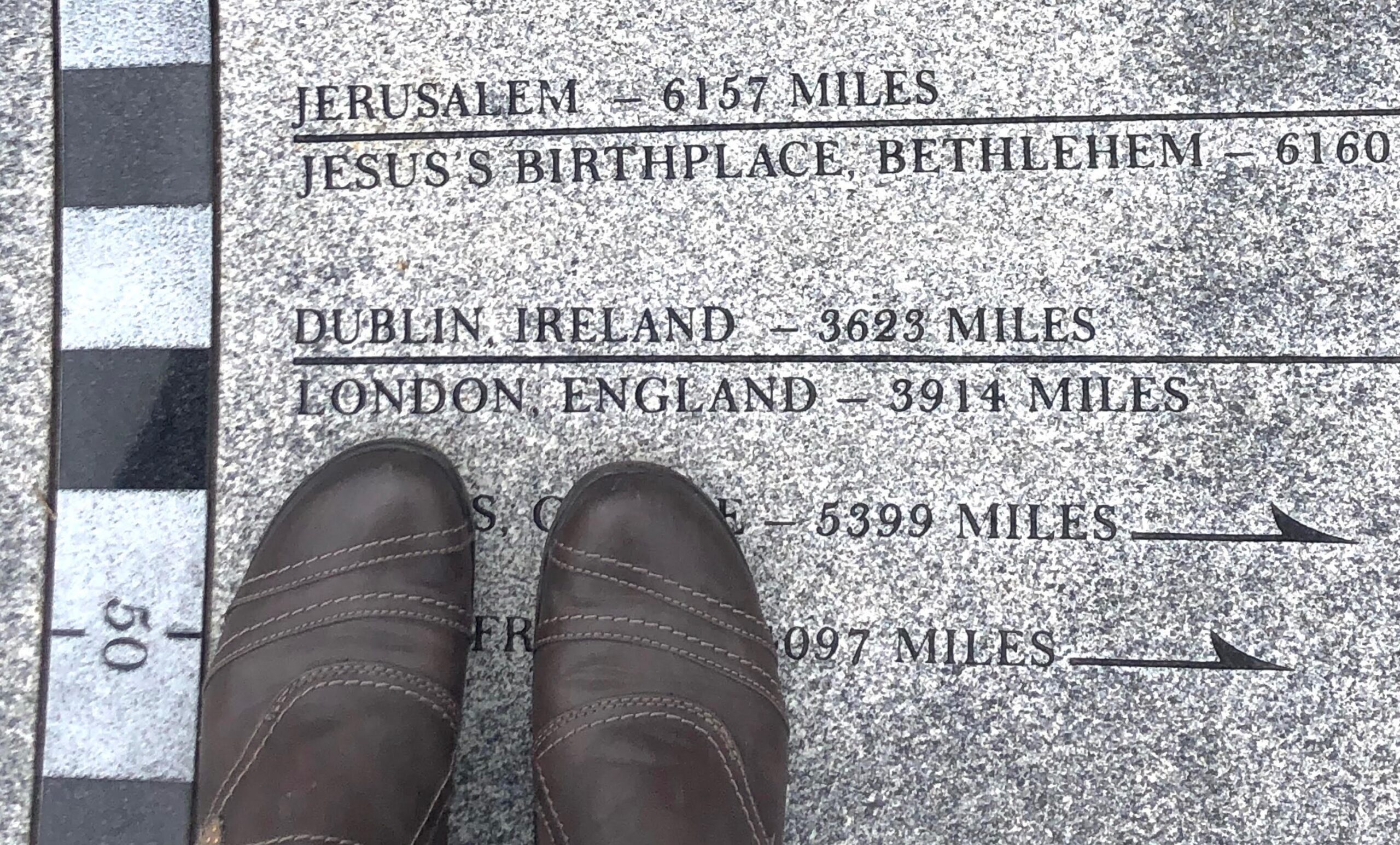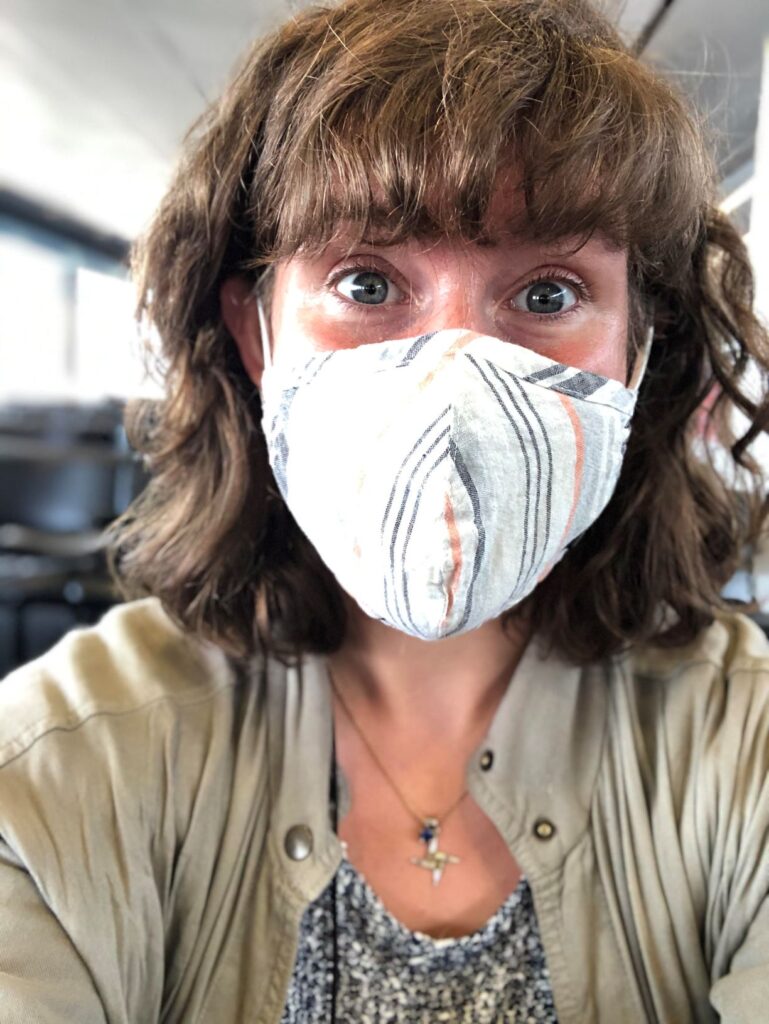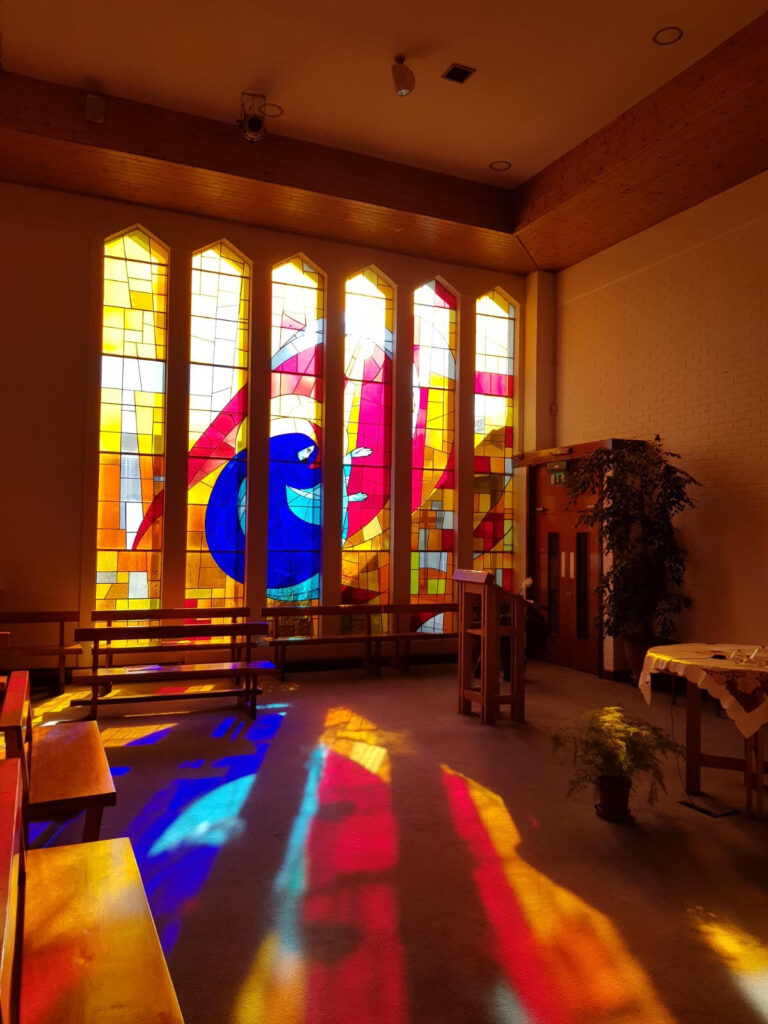I have returned to Ireland.
I’ve been repeating this phrase to myself all week, as it doesn’t seem fully real yet. After a summer of uncertainty and anxiety (heck, what’s new), Maddie and I boarded flights from Atlanta and Chicago respectively, and arrived in Dublin on August 22, despite all odds and the will of international politics.
We arrived about a half hour apart, took the bus to Dolphin’s Barn, and have been in quarantine since then. The kicker? I haven’t actually seen Maddie since we arrived. We are trying to self-isolate even from one another; I was in a friend’s wedding on August 15, and though it was masked and socially distanced, we’re trying to be as safe as possible. This means that even though Maddie is in the same house as I for the first time since March, upstairs while I’m downstairs, we haven’t gotten to properly reunite yet. No hugs, no tears, no late nights of catching up or shared meals, nothing that marks the usual reunion ritual we’ve upheld since rooming together in college.

You don’t need me to tell you again that this is a strange time for our world. The term “unprecedented” has gone from an apt descriptor for shutdowns and public health crises, to one of the most overused words in national (and international) discourse. I don’t want to have to hear or use it anymore. I want things to be stable, to be back in Wexford with the new community members whose visa approvals we’re anticipating, with the clothes and books I left behind. I want to be able to hug my friends at Clonard Parish, to sing and play at Mass as if nothing has changed since March. But, unfortunately, protocols are new. Life looks very different. We are, in fact, living in unprecedented times.

Recently I’ve been reflecting on this strange in-between time we’re living in as a kind of extended Holy Saturday. One of my favorite readings from my Christian Theological Traditions class in college was from Shelly Rambo’s Spirit and Trauma, in which the author describes the experience of Holy Saturday as a space in between death and life, a time of trauma in which the act of redemption is hidden but happening beyond our understanding. Rambo discusses this Middle Spirit as actively seeking out the traumatized and acting as witness to their suffering. She was reflecting specifically on the aftermath of Hurricane Katrina, and as the dust settles now from Hurricane Laura in the Gulf Coast, this seems like an especially apt time to be thinking about how God meets us in moments of crisis.
“The passage from death to life, as it is narrated in the crucifixion and resurrection accounts in Christianity, is more complex if viewed through the lens of trauma,” Rambo writes. “There is no smooth passage from death to life. The narrative of Holy Saturday and the descent into hell provide a picture of what persists between death and life” (Rambo 113). The author here is complicating the idea that Christ’s resurrection means we must always live in a state of triumphalism and joy; rather, she is opening up space for discussing trauma through the lens of Holy Saturday, the day Christ was dead in the tomb. I used to love this text as a means of meditating upon the grief I felt (and will always feel) at the loss of my mother three years ago. Now, I find myself reading it with more nuance and in a new, even more literal light.
We are, as a globe, in the in-between space between death and life. In the United States, over 180,000 people have already died from Covid-19, a virus which is far from under control and is just now on the rise in my hometown. We are unable to live as we would like, embracing one another, gathering over meals, celebrating milestones together. But, somehow, the Spirit is at moving amongst us nevertheless, specifically seeking us out in our separation and pain. Rambo writes, “If the middle describes the space in which persons find themselves in the aftermath of trauma, the middle Spirit provides a vision of God’s presence in the abyss” (Rambo 113).
God is with us in this waiting, this extended time of separation, the abyss of uncertainty and turmoil from a pandemic, social upheaval, the longing for justice, and climate change. One of the texts I’ve been missing the most this summer is my Portal of the Mystery of Hope book by Charles Péguy, which I left at the Wexford house, but which speaks of God’s endless, reckless love of us, a love that is always making the first move toward us, even during the Night and despite our apathy. God’s radical vulnerability towards us even places God’s hope in us, as the poet writes:
“[God] put himself in the circumstances of needing us.
What rashness. What confidence.
Well or misplaced confidence, that all depends on us.
What hope, what obstinacy, what one-sidedness, what incurable strength of hope.” (Péguy 85)
We are in a mystical time of change, of longing, and of global trauma. Let us remember that we are never alone in this in-between space, but that God is forever seeking us out, remaining with us in the waiting. As Rambo reminds us, “The Spirit remains and persists where death and life defy ordinary expression; death is neither completed nor in the past, and life is neither new nor directed toward the future” (Rambo 114). Let us look toward our reunions with Péguy’s incurable strength of hope, with the trust in God’s presence among us despite (and, perhaps, because of) this new life in the middle space. And, let us remember to find joy and hope in this accompanied waiting.

